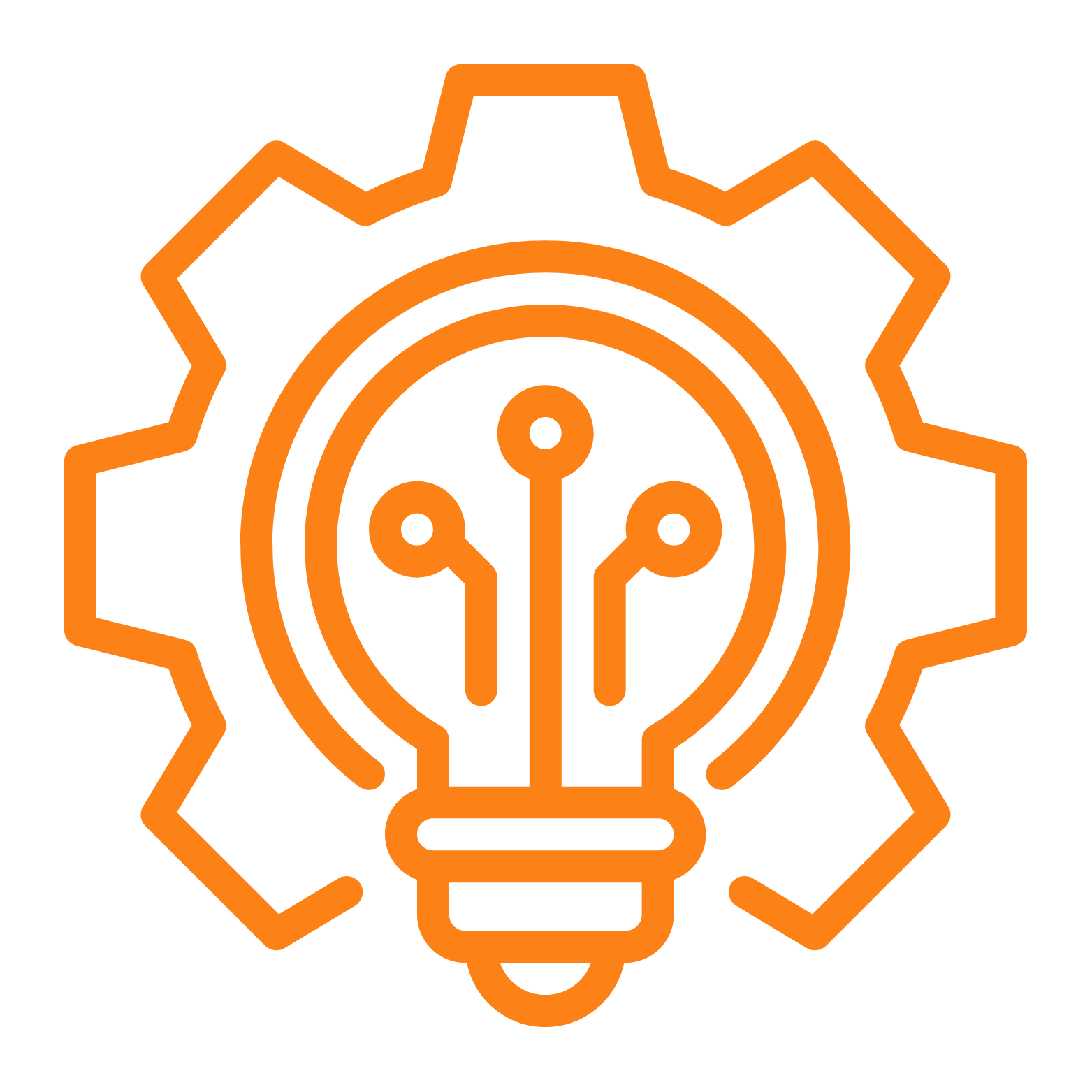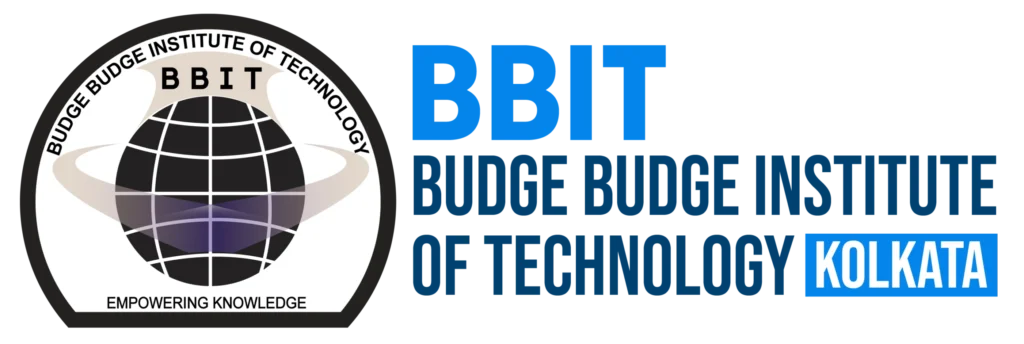B.Tech in Mechanical Engineering (ME)
DURATION: 3 YEARS
Become Leaders of Tomorrow!
The Bachelor of Technology (B.Tech.) in Mechanical Engineering at BBIT College, Kolkata, is designed to cultivate critical thinking and problem-solving skills in students, enabling them to design and develop innovative products and systems. The program emphasizes the use of analytical tools to navigate design and manufacturing constraints, expands understanding of manufacturing technologies and processes, and enhances collaboration and communication skills through teamwork.
Students benefit from hands-on experience in well-equipped labs and workshops, integrating theoretical knowledge with practical application. The program focuses on project-based, research-led learning that addresses real-world problems, allowing students to apply mechanical engineering concepts to create and solve a variety of challenges.
The B.Tech. Mechanical Engineering course adopts a comprehensive approach to develop problem-solving, project management, and leadership skills, preparing students to excel in diverse industries. BBIT College is committed to training students to become impactful professionals and innovators, fostering a career development path that is immersive, integrative, and multi-dimensional.
Program Outcomes (POs)
Apply the knowledge of natural sciences, engineering fundamentals, and specialized knowledge to the solution of real-life problems.
Identify, formulate, review research literature, and analyze complex engineering problems reaching substantiated conclusions using first principles of mathematics, natural sciences, and engineering sciences.
Design solutions for complex engineering problems and design system components or processes that meet the specified needs with appropriate consideration for public health and safety, and cultural, societal, and environmental considerations.
Use research-based knowledge and research methods including the design of experiments, analysis and interpretation of data, and synthesis of the information to provide valid conclusions.
Create, select, and apply appropriate techniques, resources, and modern engineering and IT tools including prediction and modeling to complex engineering activities with an understanding of the limitations.
Apply reasoning informed by contextual knowledge to assess societal, health, safety, legal, and cultural issues and the consequent responsibilities relevant to the professional engineering practice.
Understand the impact of professional engineering solutions in societal and environmental contexts and demonstrate the knowledge of, and need for, sustainable development.
Apply ethical principles and commit to professional ethics and responsibilities and norms of engineering practice.
Function effectively as an individual, and as a member or leader in diverse teams, and in multidisciplinary settings.
Communicate effectively on complex engineering activities with the engineering community and with society at large, such as being able to comprehend and write effective reports and design documentation, make effective presentations, and give and receive clear instructions.
Demonstrate knowledge and understanding of engineering and management principles and apply these to one’s own work, as a member and leader in a team, to manage projects and in multidisciplinary environments.
Recognize the need for, and have the preparation and ability to engage in independent and life-long learning in the broadest context of technological change.
Program Specific Objectives (PSOs)

Critically analyze complex power system scenarios and propose solutions using acquired theoretical and practical knowledge.

Work on defined projects by
interpreting power system data to provide real-time solutions to system issues

Identify optimal solutions to enhance
power transfer capability, improve power quality, and ensure reliability.
Program Educational Objectives
To equip graduates in Civil Engineering with fundamental concepts of basic science, engineering knowledge, and technical competency to work effectively in various inter-disciplinary fields.
Graduates will develop the necessary skill and proficiency for the design of Structural and Hydraulic Systems and their applications.
To provide practical exposure to modern civil engineering systems and facilitate regular industrial training to meet the basic requirements of the construction process and other industries.
To encourage engineering graduates to undertake innovative research and development work for the benefit of society.
To impart professional and ethical attitudes, skills for effective communication, and teamwork in multi-disciplinary environments for contributing effectively to the requirements of industry and academia.
Program Specific Outcomes
Students will refresh and apply the basic concepts in natural sciences in engineering in general and Civil Engineering in particular, developing the confidence to solve real-life problems in Civil Engineering through classroom exercises.
Students will specialize in advanced areas of Civil Engineering, enabling them to take up specialized professions encompassing industry and academia.
Inter-disciplinary skills are developed by cultivating fundamental concepts of mathematics, computer programming, and physics including mechanics towards mechanical, electrical, and electronics engineering from civil engineering.
To instill in students a high sense of professionalism, the ability to work as part of teams on multi-disciplinary projects and in diverse professional environments, necessary for a successful career together with strong technical, communication, and presentation skills.
Potential Job Roles
Program Overview & Structure
Theory:
- English Language and TechnicalCommunication
- Physics – 1
- Mathematics-1
- Basic Electricaland Electronic Engineering – 1
- Engg. Mechanics
Practical:
- Physics – 1
- Basic Electrical and Electronic Engineering -1
- Workshop Practice
- Language Laboratory
- Extra-Curricular Activities (NSS/NCC/NSO etc.)
Theory:
- Basic Computation and Principles of Computer Programming
- Chemistry-1
- Mathematics-2
- Basic Electrical and Electronic Engineering – II
- Engineering Thermodynamics and Fluid Mechanics
Practical:
- Basic Computation and Principles of Computer Programming
- Chemistry-1
- Basic Electrical and Electronic Engineering- II
- Basic Engg Drawing and Computer Graphics
Theory:
- Values & Ethics in Profession
- Physics - 2
- Basic Environmental Engineering & Elementary Biology
- Solid Mechanics
- Surveying
- Building Material & Construction
Practical:
- Physics - 2
- Solid Mechanics
- Surveying Practice I
- Building Design & Drawing
Theory:
- Numerical Methods
- Mathematics - 3
- Fluid Mechanics
- Structural Analysis
- Soil Mechanics
Practical:
- Technical Report Writing & Language Lab Practice
- Numerical Methods
- Fluid Mechanics
- Surveying Practice -II
- Soil Mechanics Lab - I
Theory:
- Economics for Engineers
- Foundation Engineering
- Design of RC Structures
- Concrete Technology
- Engineering Geology
Practical:
- Soil Mechanics Lab – II
- Concrete Laboratory
- Quantity Surveying, Specifications and Valuation
- Engineering Geology Laboratory
Theory:
- Principles of Management
- Highway & Transportation Engineering
- Design of Steel Structure
- Construction Planning and Management
Professional Elective - I:
- Bridge Engineering
- Pre-stressed Concrete
- Structural Dynamics and Earthquake Engineering
Free Elective - I:
- Operations Research(M)
- Human Resource Management(HSS)
- Materials Handling(ME)
Practical:
- Highway & Transportation Engg Lab
- Detailing of RC and Steel Structures
- CAD Laboratory
- Seminar
Theory:
- Environmental Engineering
- Water Resource Engineering
- Group Discussion
- Industrial Training
Professional Elective - II:
- Advanced Foundation Engineering
- Soil Stabilization and Ground Improvement Techniques
- Advanced Highway and Transportation Engineering
Professional Elective III:
- Advanced Structural Analysis
- Hydraulic Structures
Free Elective II:
- Engineering Materials
- Electrical and Electronic Measurement
Practical:
- Project Part I
- Environmental Engineering Lab
- Civil Engineering Practice Sessional
- Material Testing Lab
- Electrical and Electronic Measurement Laboratory
Theory:
- Organisational Behaviour
- Project Management
- Structural Engineering Design Practice
Professional Elective - IV:
- Environmental Pollution and Control
- Water Resource Management and Planning
- Remote Sensing and GIS
Professional Elective V:
- Finite Element Method
- Dynamics of Soils & Foundations
- Design of Tall Buildings
- Pavement Design
Practical:
- Project Part-2
- Grand viva
Eligibility Criteria
Fees Structure
24 Months EMI
₹4,583*
Interest free
Per Semester Fee
₹27,500*
Full Program Fee
₹1,65,000
Meet Our Top-Ranked Faculty






Upraise your Career Now with BBIT's B.Tech Program
Enter your detail below to get in touch
State-of-the Art Laboratories

Vision
To be a dynamic and innovative leader in civil engineering education, driving forward reliable and sustainable solutions for infrastructure development. Our goal is to make significant contributions to state, national, and global infrastructure, establishing ourselves as a premier institution in advancing civil engineering practices.

Mission
To provide high-quality education that transforms students into world-class civil engineers. We aim to equip our students with cutting-edge skills and contemporary knowledge, fostering excellence in both disciplinary and interdisciplinary research, as well as state-of-the-art design practices.

